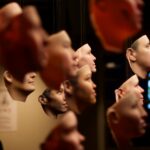Don’t just blame the police – help them get better
A few years ago, I used to cross one of our now defunct Nairobi roundabouts on my way to work. Every day I would watch most drivers ‘overlap’ by arriving in the wrong lane to turn right, then cut in by force on the roundabout itself. Mostly in full view of traffic police stationed on the other side.
Meanwhile, a few of us, dwindling in number, would wait patiently in the correct lane, forced to wait even longer by the inconsiderate boors being allowed to cut in illegally.
One such day, after waiting nearly 10 minutes to cross the roundabout and finally moving, I was stopped by a traffic policewoman. She accused me of having done the thing everyone else was doing (but I wasn’t) – cutting in unlawfully.
I got out of the car, containing my anger. I pointed out to her that I was in fact the ONLY driver out of the previous ten who had NOT cut in. Yet it was me she wished to arrest. How would society function if the innocent were victimized, while the guilty got away laughing? I fully expected to have to make a visit to one of our notorious police stations and the traffic offences court in order to defend myself.
However, the lady must have seen something genuine in my face and tone. A human connection was made. She apologized and waved me on. I left thinking perhaps all is not lost yet.
I was reminded of that incident recently when I saw the indefatigable Boniface Mwangi organizing yet another protest in Nairobi. Only this time, it was a very different event. The Polisi Ni Rafiki procession walked down our streets carrying posters praising our police force. The participants extolled the work of the police; noted the crazy conditions under which the average officer is asked to work; and pointed out that without a functioning police force we will have no society.
This procession was, unusually for these parts, received warmly by policemen and women throughout its path. The officers, used to clobbering protesters and gassing them, were instead greeting them with smiles and handshakes. And each officer met by the procession was given “kitu kidogo”: a single red rose of appreciation.
How excellent was that? A heartwarming and unusual way to make a point.
We have a huge problem with our police folk in this country. First, they have a terrible image problem. For most ordinary folk, they are the people who get into your car or accost you in dark lanes to demand bribes; they are the institution that routinely tops the perceptions-of-corruption charts. And for many politicians, the police have been degraded to a tool for personal gain.
This is a bad place to be. Without an independent police force that truly upholds the law for all, and acts in the interests of all Kenyans, we will go nowhere worth going. Over the years, many high-level attempts have been made to reform this key institution. Most have gone nowhere.
What Polisi Ni Rafiki showed us is that we, the ordinary people, have a role to play. Rather than view the police uniformly as ogres deployed to oppress us, we should see the human being behind the uniform. There are many decent individuals caught up in a bad culture. Let us encourage them to do the right thing. Let us appreciate their hard work and sacrifice. Let us stand alongside them in making this a better country.
The Baragoi massacre revealed the disdain with which the average police officer is viewed by those in power. Let us take this opportunity to offer comfort and sympathy as ordinary citizens. Often, offering the hand of friendship is better than pointing the finger of blame.

Buy Sunny Bindra's new book
The X in CX
here »
Popular Posts
- Make this your year of being boringJanuary 4, 2026
- My books of the yearDecember 14, 2025
- Confessions of an explaining personDecember 7, 2025
- Here’s why you should become foolishNovember 30, 2025
- Is AI hiring your company into oblivion?November 23, 2025















